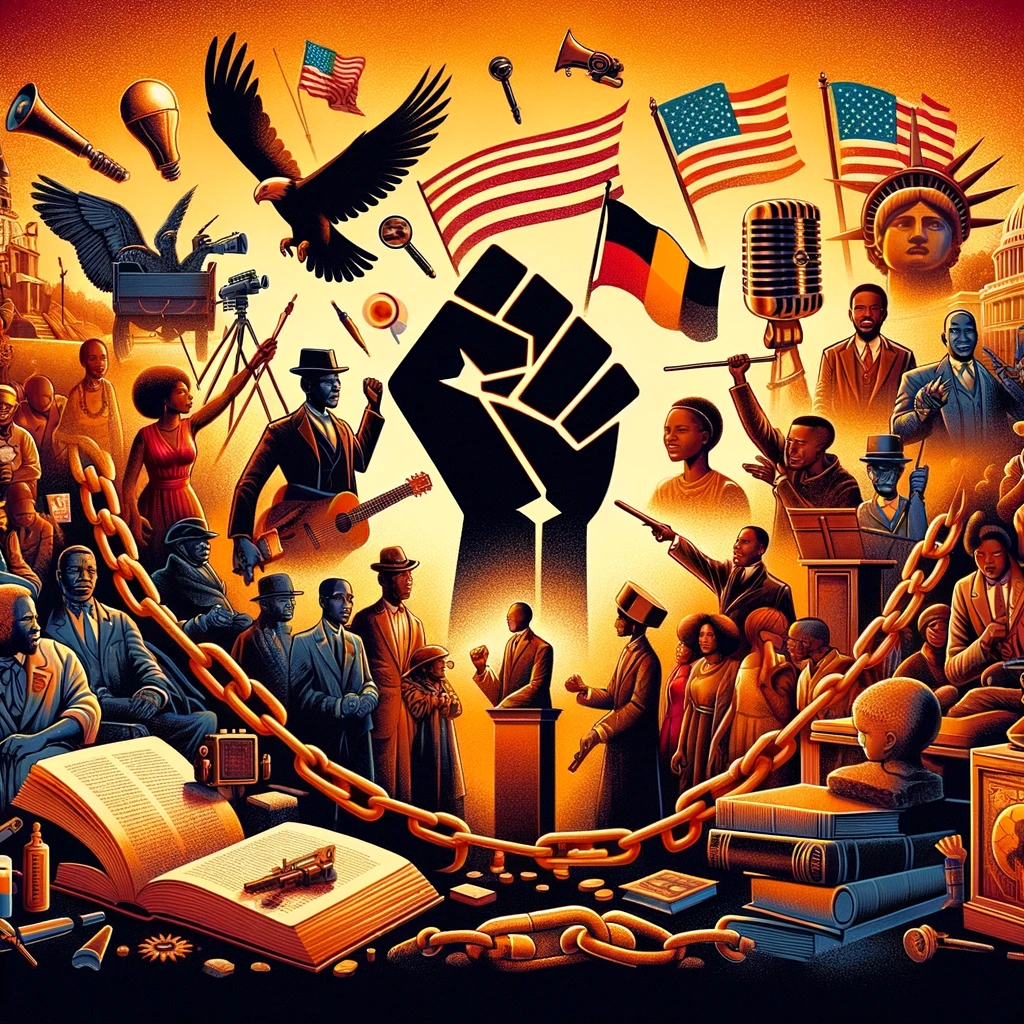A rich tapestry of struggle, resilience, triumphs, and remarkable contributions threads through African American history. Since the era of slavery and through the civil rights movement, African Americans have shaped history with their indomitable spirit and relentless pursuit of equality. This article highlights key milestones, prominent figures, and significant accomplishments of African Americans.
The Era of Slavery
In the United States, the brutal institution of slavery marks the beginning of African American history. Millions of Africans were forced to endure unimaginable hardships. Enslaved individuals maintained their humanity and cultural heritage through music, art, and storytelling. Figures such as Harriet Tubman, Frederick Douglass, and Sojourner Truth emerged as leaders advocating for emancipation.
Emancipation and Reconstruction
The legal end of slavery came in 1865 with the ratification of the 13th Amendment and the issuance of the Emancipation Proclamation. The Reconstruction period saw African Americans gaining political and civil rights, albeit briefly before the rise of Jim Crow laws and systemic oppression.
Civil Rights Movement
The 20th century saw the Civil Rights Movement, characterized by nonviolent protests, activism, and the fight for equality. Leaders like Martin Luther King Jr., Rosa Parks, and Malcolm X led the struggle against racial segregation and discrimination. The Montgomery Bus Boycott, the March on Washington, and the Civil Rights Act of 1964 were pivotal moments in this struggle.
Cultural Renaissance
Despite these challenges, African American culture experienced a renaissance. The Harlem Renaissance in the 1920s, with luminaries such as Langston Hughes, Zora Neale Hurston, and Duke Ellington, showcased a surge in artistic, literary, and intellectual achievements. African American contributions continue to shape global culture in music, literature, visual arts, and film.
Political Empowerment
Significant progress has been made in the political empowerment of African Americans. The election of Barack Obama as the 44th President of the United States was a historic moment, symbolizing progress and the breaking down of barriers. African Americans today hold influential positions across various government levels, shaping policies and advocating for change.
Economic Empowerment and Entrepreneurship
Economic empowerment has always been crucial within the African American community. Despite historical barriers, African Americans have made significant contributions as entrepreneurs, business leaders, and innovators. The narrative of African American history includes stories of economic progress, from the early success of Madam C.J. Walker to the thriving ecosystem of Black-owned businesses.
Contemporary Challenges and Activism
Progress notwithstanding, challenges persist. Inequalities in resource access, systemic racism, and socioeconomic disparities remain pressing issues. Movements like Black Lives Matter have reignited the fight against racial injustice and police violence, shaping the national conversation on racial equity.
Black Lives Matter
The Black Lives Matter movement has become a formidable force against racial injustice and inequality. Born from frustration over continued systemic racism and violence against African Americans, it was catalyzed by the acquittal of Trayvon Martin’s killer in 2013. Founded by Alicia Garza, Patrisse Cullors, and Opal Tometi, the movement demands accountability, amplifies marginalized voices, and advocates for systemic change.
Prominent Figures in African-American History
African Americans have significantly contributed to various fields, influencing both the African American community and the nation. Figures like Harriet Tubman, Frederick Douglass, Sojourner Truth, Booker T. Washington, W.E.B. Du Bois, Rosa Parks, Martin Luther King Jr., Maya Angelou, and Barack Obama have left indelible marks on U.S. history. Their achievements inspire future generations, challenging societal barriers and fostering a more inclusive society.

